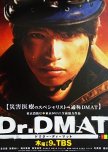
A Waste of Time
I started watching this knowing it was originally a Manhwa. I'm not sure if the drama followed the Manhwa exactly, but if the Manhwa was like "THIS", then it was badly written. The story did not have a meaning to it, and as the drama went on, it got even more boring. About six episodes before the end, I was hoping the show would get canceled and end quickly because I could not take it anymore. In the last episodes, I ended up sleeping whenever I start watching it.Viewers usually get attached to the characters when watching, but not in this. Knowing it was a Manhwa beforehand, I expected the characters to be quirky and childish, but that did not help, I disliked all the characters. I feel like the writers made all the characters seem pitiful, and I really hated that. I hated how Han Chae Young acted, she always had the same facial expression. I don't know if she was supposed to act like that, but she was the worst in my opinion.
The main actors severely lacked chemistry. No sweet moments at all. I really did not care who Bo Tong or Ma Te ends up with; I just wanted the drama to end.
I was expecting too much from this drama, but what a royal disappointment it was. I regret wasting time on it.
Considerați utilă această recenzie?

A well shot, well-acted, great story
I really think this drama deserves a review since not many people have watched it. This was my first Japanese medical drama, which I rather enjoyed. Basically, this is a medical drama, but not the usual one where the characters are literally stuck in the hospital almost all of the drama. The story is about the "Disaster Medical Assistance Team", trained doctors and surgeons sent to accident/disaster sites.Story:
The story was mainly interesting but there is a feeling of needing more. More accidents, more disasters. It is an episodic series, with almost one accident/disaster in each episode. Because there is a need for more, I have found some teeny tiny scenes useless where nothing was happening in those scenes.
I applaud Dr. Hibiki's character growth. At first, he was this wimpy coward doctor, who was afraid of doing surgeries and irritates you by his slow response and slow-motion movement in disaster sites. But as the series goes on, he starts using the good brain he has and functions more effectively as a surgeon and a member of the DMAT.
Hibiki's unrealistic obsession with his sister Haruko, who was in a coma through the series, is too much. He does not have a life without her, basically always being with her, never going home, and always sleeping in her hospital room. It is understandable that he feels guilty over not helping her but how does that translate into trauma and refusing to treat patients. It is not like he made a mistake while operating or has killed someone, so instead, it should have been that he is afraid of not treating patients/victims and causing them to be like his sister.
Acting/Cast:
Compared to the other Japanese manga adaptations I have watched, this one is on the Good Acting list. Even the guest actors did a good job.
Music:
I did not actually remember any of the songs that were in the series. The only song I liked and remembered is the ending theme song. I went over the first episode while writing the review, and noticed that the music is mostly played in scenes where you are more excited/curious to notice them, but they did add feeling to the scenes.
Cinematography/Editing:
I really have to add this category because I wanted to talk about the bad transition between scenes. When the scene ends, what they do is suddenly cut the music and the picture is just plain black. Many times I thought my laptop just ran out of battery. I don't know if they did indeed notice this problem later on in the drama, or I just got used to it, but it gets better later on.
Also, I think they did spend more money on cinematography because it did look really good compared to other Japanese dramas.
Considerați utilă această recenzie?
























